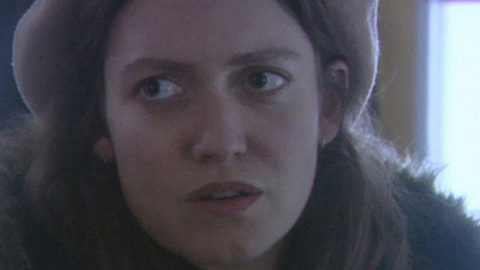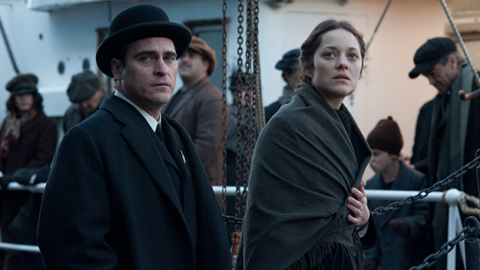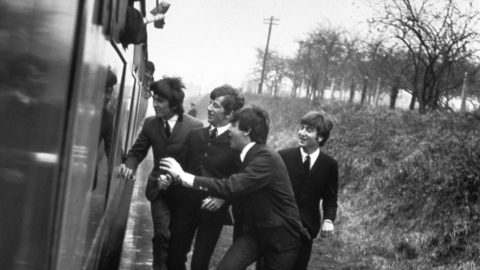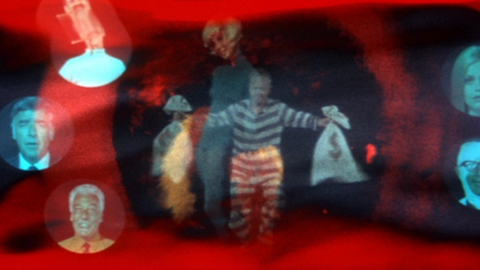Film of the Week: Yesterday

Here’s an amusing party game: imagining what things would have been like if there had been no Beatles. The white pop world of the 1960s might have belonged to the Kinks, or the Box Tops, or the Dave Clark Five; there would have been no Nilsson, no psychedelic-era Prince and, on the plus side, no Electric Light Orchestra; the sight of Victorian military regalia would have put you instantly in mind of the Crimean War rather than Carnaby Street; Brian Wilson might have got Smile out on time.
Yes, it’s an engaging party game, but as a film, strictly a back-of-a-matchbox conceit. In Yesterday, director Danny Boyle and writer Richard Curtis expand on the theme as buoyantly as possible, although somehow this finally feels like a rather small, forlorn movie. For many viewers, the combination of Boyle and Curtis will be a dream ticket. They’re surely the Lennon and McCartney of contemporary mainstream British cinema—that is, if you were to represent John as simply being right-on, clever, and brashly abrasive, and Paul as just a facile dispenser of honeyed bagatelles. Boyle and Curtis embody different kinds of cinematic Britishness: for the former, it’s that assertion that Brits can make bold, stylized movies as well as anyone, while with Curtis what dominates is that coy self-effacing touch, that element of, “OK, we’re sort of rubbish but gosh, at least we know it,” exemplified by the blushing, throat-clearing shtick patented by Hugh Grant.
Whatever one might have expected from a Boyle-Curtis partnership, the result is dismayingly thin. The premise of Yesterday (the story is credited to Curtis and TV writer/producer Jack Barth) is that, due to some freakish cosmic event, all memory of the Beatles is erased overnight, with apparently no one remembering their songs but Jack Malik, a good-natured, enthusiastic but not terribly talented young British busker. Played by Himesh Patel, Jack works in a warehouse in English coastal town Lowestoft, and cranks out his banal self-penned ditties in pubs and on seafronts, while yearned-after fame, and even mild grudging recognition, continue to evade him. Then the cosmic thing happens—in a witty touch, to the big doomsday fanfare from “A Day in the Life”—and suddenly Jack realizes that he’s the one person in the world who has not only heard of the Beatles but can also perform their songs.
The film’s first big joke is that, initially, no one’s that interested. He impresses his friends with his “Yesterday”; one of them remarks that it’s not bad but not in the Coldplay league. He tries to impress his parents (Meera Syal and Sanjeev Bhaskar) with a “premiere” of “Let It Be,” but can’t get through the first verse without interruptions.
Then he’s spotted by a massively successful real-life music star, playing himself, who invites Jack to support him in Moscow; Jack plays “Back in the USSR,” which goes down a storm with a crowd who look way too young to remember what the USSR was, let alone BOAC. As a result, Jack is signed by the star’s hard-nosed American agent, played by Kate McKinnon; her cutthroat, brutally uncensored observations are a decent sustained riff, albeit a pretty one-dimensional one (surely Curtis is smart enough to know that the blue pencil should have been applied to a chase scene in which she yells, “In the name of money, stop!”).
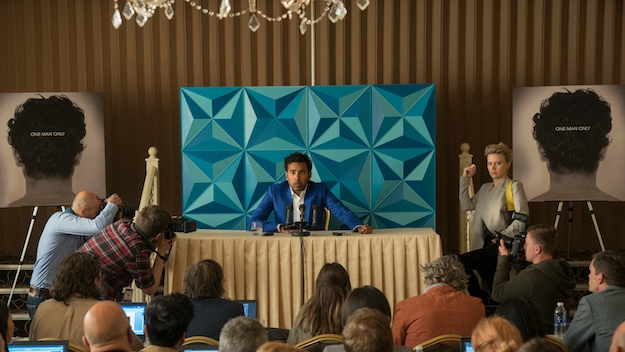
Swallowing his conscience, Jack passes himself off as the sole creator of the Beatles’ repertoire, which he knows by heart—although he struggles to piece together a complete “Eleanor Rigby.” But as he finds success, he loses love: his school friend and former manager Ellie (Lily James), who has secretly adored him all along. In a shameless self-tribute, Curtis has Jack race frantically to Liverpool’s Lime Street Station to catch Ellie before her train leaves, Love Actually style—only to find that she’s waiting for him in the café. Other Curtis tropes are securely in place: the loyally bland, vaguely eccentric bunch of chums, and the goofy bohemian sidekick, with Joel Fry stepping into the battered sneakers of Rhys Ifans in Notting Hill. Meanwhile, Boyle laces the proceedings with a few characteristic whizz-bang effects: Jack stands dazzled as the signs of his success flash before him on giant screens; there’s a nice, very Boylean cut from a thunderous crowd roar to absolute silence; and, mystifyingly, the giant words “HELLO GOODBYE” racing up the Mersey Tunnel.
Here, however, is the odd thing. The internationally celebrated star who takes Jack under his wing is Ed Sheeran. He plays himself, and his presence becomes a running joke to which Sheeran, give him his due, lends himself with sporting good grace. When he challenges Jack to a songwriting challenge, the latter thrashes him with “The Long and Winding Road,” and Sheeran concedes that the young unknown is a far greater talent—Mozart to his Salieri, as he puts it. That’s very decent of him, but then even the filler tracks on Lennon’s Mind Games or McCartney’s Red Rose Speedway are incomparable masterpieces next to Sheeran’s output—and the film suggests that he kind of knows it.
The fact that it’s Sheeran in the benefactor role and not someone whose talent could legitimately make you gasp is the whole point (reportedly, he was second choice to Coldplay’s Chris Martin, a similarly tepid proposition). Sheeran is famous as someone whose success is freakishly improbable, not because of the paucity of his talent (of which the world, inexplicably, remains in denial) but because of his approachable ordinariness, his lack of apparent star personality. The film’s point seems to be that it’s not ineffable talent that necessarily makes stars, so much as affability and dumb luck. A clever casting touch is a cameo by British star Michael Kiwanuka, who definitely is talented, but whose out-of-nowhere rise was fuelled by his undemonstrativeness as much as his undeniable command of a traditional folk-soul vein. And when Jack appears on American TV, it’s with James Corden—another Brit whose rise rests as much on his indefatigable ability to enthuse as on his talent (never mind forgetting “Octopus’s Garden,” the real shame is that everyone, including Corden himself, has forgotten how genuinely moving he was in Mike Leigh’s All or Nothing).
Yesterday’s bottom line is that if Sheeran can become an idol, anyone can, although songs of Beatles caliber may help. It’s a blatantly perverse joke to have someone who works with Ed Sheeran to constantly call Jack an unappealing schlub—when actually Himesh Patel is altogether dashing and quietly charismatic and witty throughout. The central conceit is neat but not entirely consistent: despite the Beatles being erased from history, bands like the Killers and the who-are-they-again? Fratellis still exist, although (in a smart enough gag needlessly underlined) Oasis doesn’t. The argument is that a world without the Beatles would be a very sad place indeed. And yet the film suggests that it’s almost as if they hadn’t existed. For all that they raised the bar for excellence in songwriting, we nevertheless live in a world in which Ed Sheeran is a megastar, and in which mainstream pop’s stylistic parameters have become much more normative. Today, because listening habits and expectations have changed, if some unknown did stand up and regale the world with never-heard gems like “She’s Leaving Home” or “Dear Prudence,” few people would pay that much attention, outside the retro-attuned constituency that faithfully buys every new Mac DeMarco release.
Given Boyle’s and Curtis’s proudly left-wing convictions, and the current state of Britain’s confused self-identity, it would be nice to extract from Yesterday some pithy metaphoric insights about the U.K.’s place in a troubled world. Unfortunately, all the film really does is offer a chummy McCartney-esque thumbs-up for old-fashioned British simplicity, good humor, and skepticism about worldly success. Jack manages to retain dignity, even integrity, throughout his extended imposture, partly because he’s never seen to yield to the temptations of fame. There’s no sense of how his sudden triumph affects him, other than panic and vague guilt (a literal case of Impostor Syndrome). There are no drugs, no bacchanalian sex—all Jack does when he gets famous is to work harder and put in the hours. He’s mercilessly milked by the showbiz machine, but the film doesn’t have much to say about art and capitalism. A music biz marketing meeting attended by an army of cheering yespeople is mechanical satire and, as social comment, nowhere near as pithy as one near-subliminal touch: an exterior of an elite U.S. recording studio, and a homeless person shuffling past with a shopping trolley.
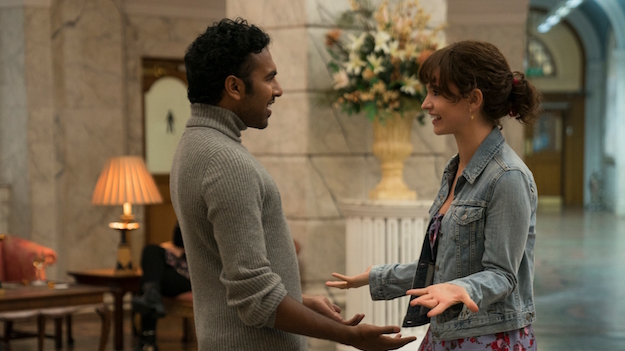
Two good souls do speak to Jack’s conscience. One is an elderly apparition who dispenses sage advice about doing what you love—a glutinous, somewhat mendacious scene (you’ll see what I mean) which exceeds anything Curtis has ever done when it comes to pious sentiment. The other is Ellie; her gauche embodiment of enduring enthusiastic love is a predictable fit for Lily James, whose wide-eyed, squeaky clean persona here, all golly-gosh effusiveness, makes for one of the most paper-thin, not to say regressive, female characterizations in recent cinema. It makes James’s take-me-away-from-all-this waitress in Baby Driver look like the Queen of the Night.
Anyone who loves pop for what it can do—not just for what it did once upon a time—will have had far too much of this necrophilic wallowing recently: the second Mamma Mia!, Bohemian Rhapsody, Rocketman… It’s fair enough to celebrate how good the Beatles songs were, but it’s naïve to pretend that it was all just in the ineffability of the words and the notes, rather than the personalities, the performances, the recording. That the Beatles songs were full of surprises, of pain and doubt instead of just sunshine, is something that Yesterday only acknowledges when Jack performs a live “Help!” that actually has some conviction as a cri de coeur (even if his backing band does make it sound more like a middling Lemonheads number).
Despite its insistent jollity, this is ultimately a glum film that essentially tells us that the good stuff is all in the past, and pretty much accepts that state of affairs. Yesterday is about the themes you expect in a Richard Curtis movie—finding love, embracing the ordinary, the futility of chasing false rewards. That’s all very noble and laudable, but the price of the film’s romantic payoff is a rather parochial fetishization of the joys of mundanity and of not dreaming too high. The film is painfully smug about its ideal innocent pleasures, as epitomized by an early scene on an English beach bathed in evening light, where good mates sit around cracking affectionate jokes—and talking about how “Yesterday” is fine but it’s hardly Coldplay. Yesterday, for all its sly, often smart irony, is closer to cinematic Coldplay than it realizes.
Jonathan Romney is a contributing editor to Film Comment and writes its Film of the Week column. He is a member of the London Film Critics Circle.



